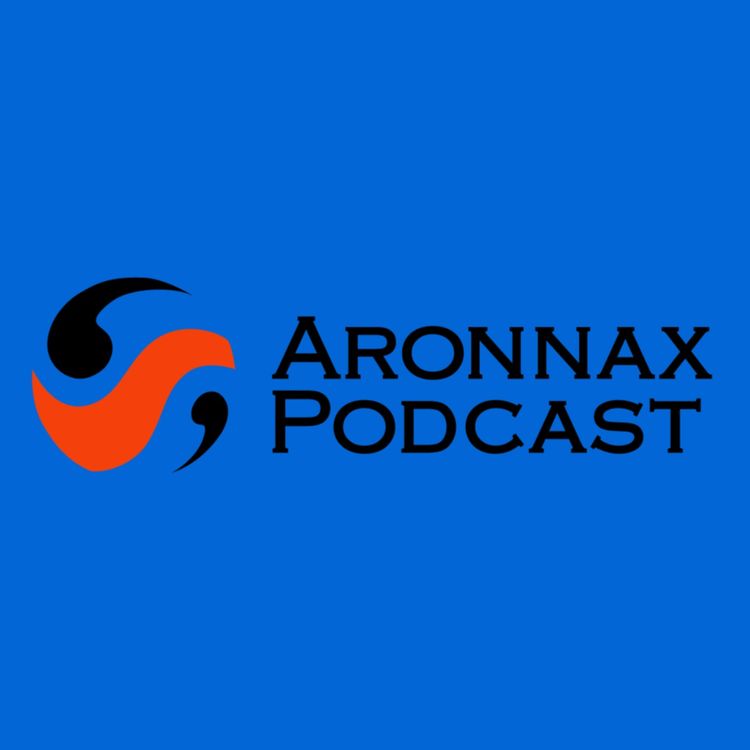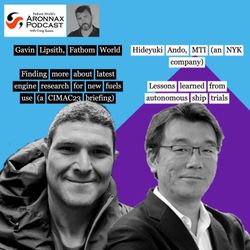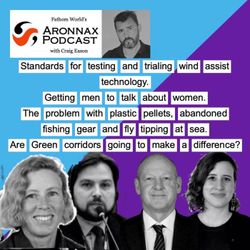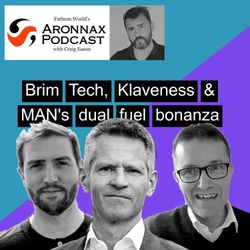Share

Aronnax. The maritime and ocean podcast
Autonomous Ships- the start-ups
This is our last episode before a summer break, and we have the last of the three episodes looking at the development of autonomous ships and autonomous vessel systems.
We have heard about the commercial projects and the development of international regulations earlier, but not all the technologies on autonomous vessel systems are bound for vessels that need to company with the international regulations that have been written by the International Maritime Organisation. There are many drones, and autonomous systems that have, and still are being developed for research and military space.
So in this episode we will look at the startup market, and what is happening to create the link between innovation and commercial reality.
I also have the second half of my interview with Brett Phaneuf, the American behind the Mayflower project that will send an IBM powered autonomous ship to resail the route of the original Mayflower, which sailed from Plymouth UK to Plymouth, USA 400 years ago.
Now, autonomous systems seem to eb growing in popularity, and certainly have captured the public imagination.
So, what do we mean about autonomous technology? Nick Chubb, founder and CEO at the research consultancy Thetius in the UK recently published a report on the autonomous vessel market.
So I asked him to explain the potential market and where the growth will come. We also talked which countries are taking the lead in autonomous start-up systems for research and development
He talked about the US and Israel, and it is to Israel that we look. The country has an extremely buoyant startup market where backing is available for business to business solutions, and one nexus for shipping and maritime startups in the country is the Dock Innovation Hub, a startup accelerator that has now become a venture capital fund, backing the maritime startups that it bringing into its ecosystem. In June the Dock launched a call to find some autonomous system startups to meet the demands of two of its corporate clients.
These two clients are ThyssenKrupp’s marine systems division, and a subsidiary of the same company called Atlas Elektronik. Both are based in Germany. These companies are already well now military and maritime systems developers, with a history in warfare and naval technologies, remote sensing and increasingly automation. Atlas Elektronik has already developed autonomous minesweeping which it now supplies to the British Royal Navy.
They have teamed up with the Dock to find new technologies and startups that address a range of challenges. They launched the call in June this year, and hopeful startups have until August to send in applications based on a range of different technology needs that are being sought.
This then is a good chance to get a feel for the autonomous systems market, and where the ideas are coming from.
I spoke to Nir Gartzman, which is the chief Operating Office at the Dock in Israel to find out how many startups he thinks there are and why large corporates with existing expertise in developing innovative systems would go looking for startups?
And the episode ends with the second half of my recent chat with Brett Phaneuf. Brett is in charge of the Mayflower Autonomous Ship Project which has built an autonomous unmanned trimaran style vessel that will use IBM software – algorithms. Artificial intelligence. As well as sensing technologies to sail later this year from Plymouth, England, to Plymouth USA. Yes, the same two ports that the Mayflower vessel sailed between with the mostly Dutch and English pilgrims 400 years earlier.
My interview with him went beyond the actual voyage and to what he thinks the voyage will achieve and change things both for science and the technology and use of autonomous systems.
More episodes
View all episodes

11. From the IMO the day history was made
32:42||Season 8, Ep. 11The immediate response from across the spectrum of those in the room when the decision at the IMO to strengthen shipping's decarbonisation strategy was made.
10. July 3rd 2023
26:59||Season 8, Ep. 10
9. Ships and their steel. Turning it green?
25:36||Season 8, Ep. 9

7. June 4th 2023
28:08||Season 8, Ep. 7Craig Eason talks to: Alco Weeke, STC on the launch of METNET and seafarer training for a new industryDi Gilpin, Smart Green Shipping, on having a nuclear fuel carrier agree to instal a test wind system on a ship.Pia Meling, Grieg Green, on the risks of not understanding the transparency actsShane McArdle, CEO, Kongeberg Digital, on the future of the company now Shell Ventures and IdeKapital invest $90m
6. May 28th 2023
36:09||Season 8, Ep. 6News stories relating to this edition of the podcast can be found atAutonomous Ships and Autonomous crew: why we need both CIMAC Congress returns to a new era of decarbonisation
5. May 8th 2023
26:38||Season 8, Ep. 5Craig Eason talks to: Loukas Kontogiannis, Head, Marine Pollution, Marine Environment Division. Is ship sourced plastic pollution a challenge too big?Sofia Werner RISE MaritimeThe need to tell shipping’s growing good news about wind propulsion carefully Mariana Noceti, Principal Programme Assistant, Women in Maritime Programme, Technical Cooperation DivisionThe role of men and International Women in Maritime DaySveinung Oftedal, Norwegian Ministry of Climate & EnvironmentWhat exactly is a green corridor and how will it help the shipping industry in its efforts to decarbonize?
4. Brim Tech, Klaveness' sustainability, and MAN ES engine bonanza
41:06||Season 8, Ep. 4Brim Explorer is a young company started by two entrepreneurs in 2018. It has thrived, now has a fleet of soon to be five electric or hybrid electric vessels, has a partnership with a leading ferry operator and a technology spin off. I sat down on one of the company's founders, Espen Larsen-Hakkebo, on one of his boats during a trip to Oslo to talk about the company journey and the idea for the tech companyAlso I have a slip from a conversation I had with the Engebret Dahm, CEO of ship owner Klaveness Combination Carriers about their decarbonisation plans and also spoke to MAN ES about one of the topics Dahl spoke about, the needs for the engines and the fuel
3. Investing in maritime greentech, CCS onboard & renting the wind
29:41||Season 8, Ep. 3more details to come